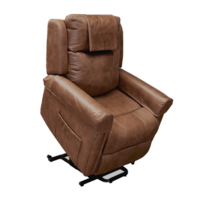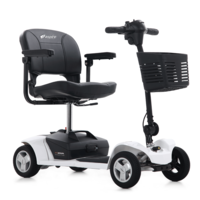Goal Setting and the NDIS
The National Disability Insurance Scheme (NDIS) is intended to give people with a permanent disability greater choice and control over the support and treatment they receive. The NDIS is administered by the National Disability Insurance Agency (NDIA), an independent statutory body.
Participants in the NDIS work with a Local Area Coordinator to draft a plan that sets out the particular funding required for their supports. This plan is relayed to the NDIA, who determine the funding allocation.
If you’ve read information about the NDIS, you may have noticed that goal setting forms an important part of the planning process. But where do you start when it comes to setting out your goals under the NDIS?
Goal setting and the NDIS
Your goals under the NDIS are the specific outcomes that you would like to achieve, which are tied to particular supports and treatment.
The aim of the NDIS is to encourage greater social, economic and community interaction for people with a permanent disability. So your goals will be related to these areas of your life. They can be big or small and cover many different areas.
To begin the goal planning process, start thinking about your daily life – from when you wake up, to how you spend your day and what you like to do with your time. Then consider what you need to carry out these activities.
Consider also the current support you receive – both formal (from the government, the hospital, state health or housing commission) and informal (from your family, friends, and community). Is it adequate and does it meet your needs? Are there better options available?
For example, you may enjoy going out with friends every weekend, but you’re reliant on a family member to get you there. Would a reliable carer enable you to go out and socialise without needing your family’s help? Would this allow you to do more of the things you like to do?
The general types of goals you could have include:
-
Being more independent
-
Taking part in social activities or employment
-
Improving your health and wellbeing

Your own goals may encompass some or all of these areas.
The goal setting process can be daunting, especially if you’ve never had the opportunity to really think about what your life could be like. As you start planning, that can help to consider a few of these questions:
-
What are the things you like doing or wish you could do more of?
-
What things would you like to change? What things would you like to try or experience?
-
What is stopping these things from happening?
-
How could NDIS funding help?
Once you’ve thought about the particular activities you’d like to do, you can then focus on the support you need. Remember that NDIS funding can cover all ‘necessary and reasonable supports’, so it helps if you can frame your asks as something that will help increase your economic and social participation, or representing value for money.
An NDIS Goal Example
Let’s look at a hypothetical situation to show your own goal setting process might work.
Lydia is a 32-year-old women with muscular dystrophy and needs to use a wheelchair for the majority of the day. She lives alone and is independent, but needs help with some activities such as cleaning and getting to appointments.
Lydia’s current wheelchair is seven years old and is no longer as efficient as it used to be. The battery wears out quickly and she can’t use it to travel long distances.
Under the NDIS, Lydia identified her goals as being:
-
To maintain her independence
-
To be able to travel solo
To help her meet these goals, Lydia identified a number of supports that she needed to be met under the NDIS. These included:
-
Home cleaning services for the particular tasks she found difficult
-
Physiotherapy and yoga classes to maintain her physical fitness
-
A new wheelchair to allow her to move around independently
Preparation is key to getting the most of out the NDIS process. As you think about your goals, you can also involve other people in the process. This might include family members, your current carers, allied health services, and providers. By gathering as much information as you can, you’ll be able to explore all the possibilities of what might achieve under the NDIS.
If, as you plan out your goals, you think that Assistive Technology could form part of your plan, it can help to speak with a registered NDIS provider to explore your options. Mobility HQ’s expert team can provide advice and assistance on Assistive Technology and can help you find the right aids to help you reach your goals.
For more information on the NDIS or to speak with an equipment specialist regarding your needs, call our friendly team on 1300 017 592. Or read our Quick Guide to Getting Started with the NDIS.



























